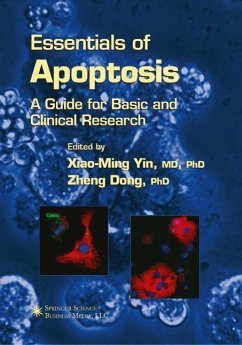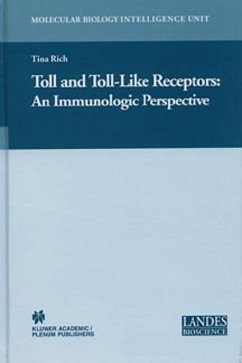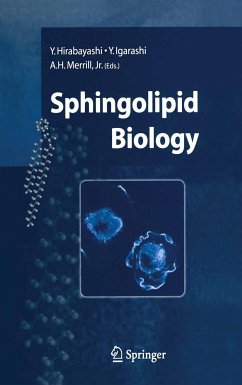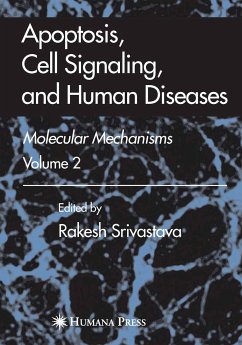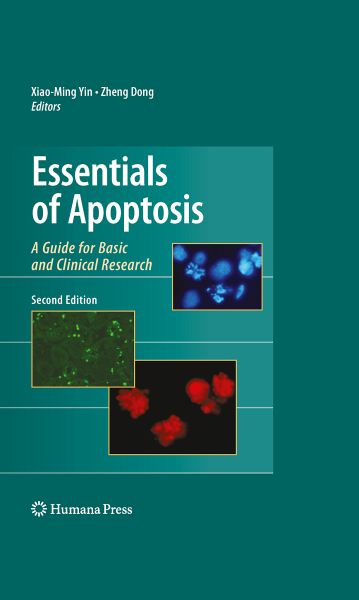
Essentials of Apoptosis (eBook, PDF)
A Guide for Basic and Clinical Research
Redaktion: Yin, Xiao-Ming; Dong, Zheng

PAYBACK Punkte
64 °P sammeln!
This is the second edition of the comprehensive, concise summary of apoptosis research. It covers the major concepts, molecular architecture, the biochemical pathways, and pathophysiological significance of apoptosis. This book provides a guideline of standard biochemical and cell biologic approaches to apoptosis bench work with an emphasis on translational clinical applications for immune disorders, cancer research, ischemia, and neuronal degeneration. Since the original publication in 2003, the apoptosis field has expanded rapidly - chapters not only need to be revised and expanded, but ther...
This is the second edition of the comprehensive, concise summary of apoptosis research. It covers the major concepts, molecular architecture, the biochemical pathways, and pathophysiological significance of apoptosis. This book provides a guideline of standard biochemical and cell biologic approaches to apoptosis bench work with an emphasis on translational clinical applications for immune disorders, cancer research, ischemia, and neuronal degeneration. Since the original publication in 2003, the apoptosis field has expanded rapidly - chapters not only need to be revised and expanded, but there is a need for all new chapters covering exciting advances in bioinformatics, systems biology, oxidative stress, etc.
Dieser Download kann aus rechtlichen Gründen nur mit Rechnungsadresse in A, B, BG, CY, CZ, D, DK, EW, E, FIN, F, GR, HR, H, IRL, I, LT, L, LR, M, NL, PL, P, R, S, SLO, SK ausgeliefert werden.




